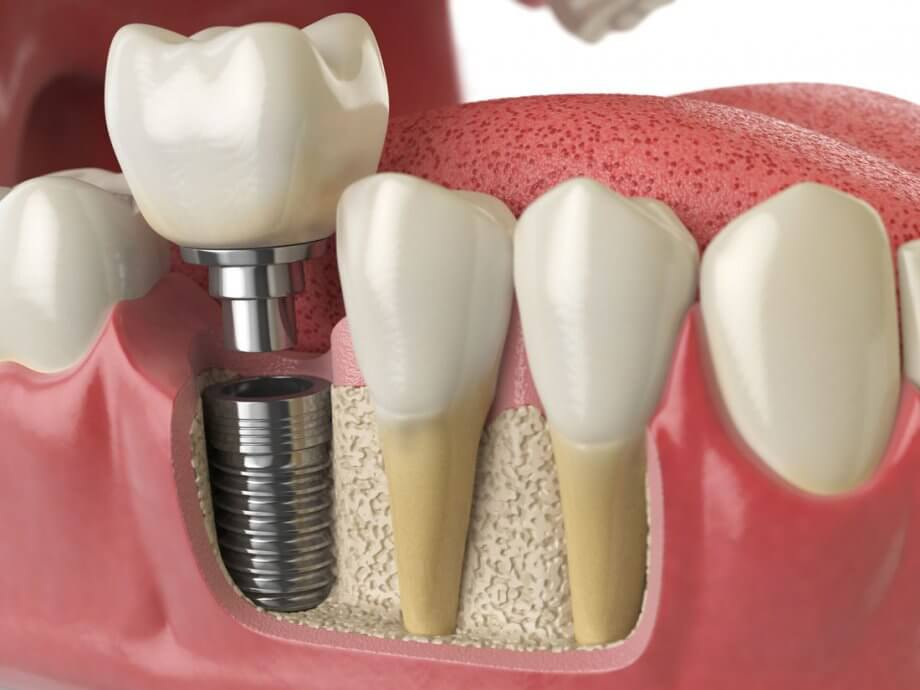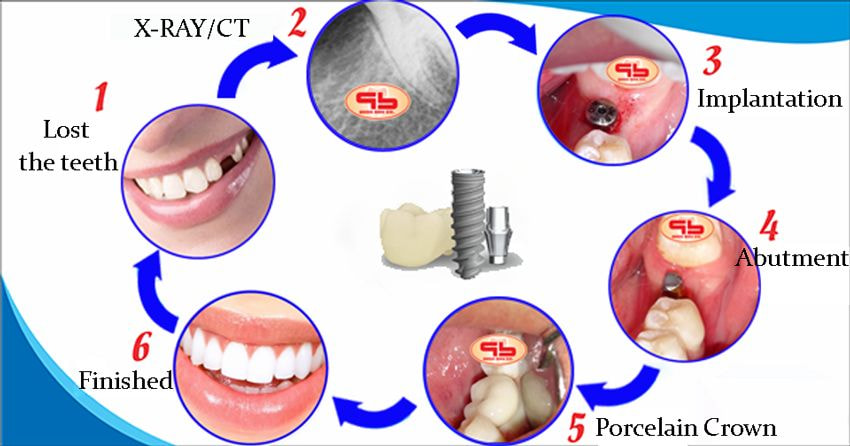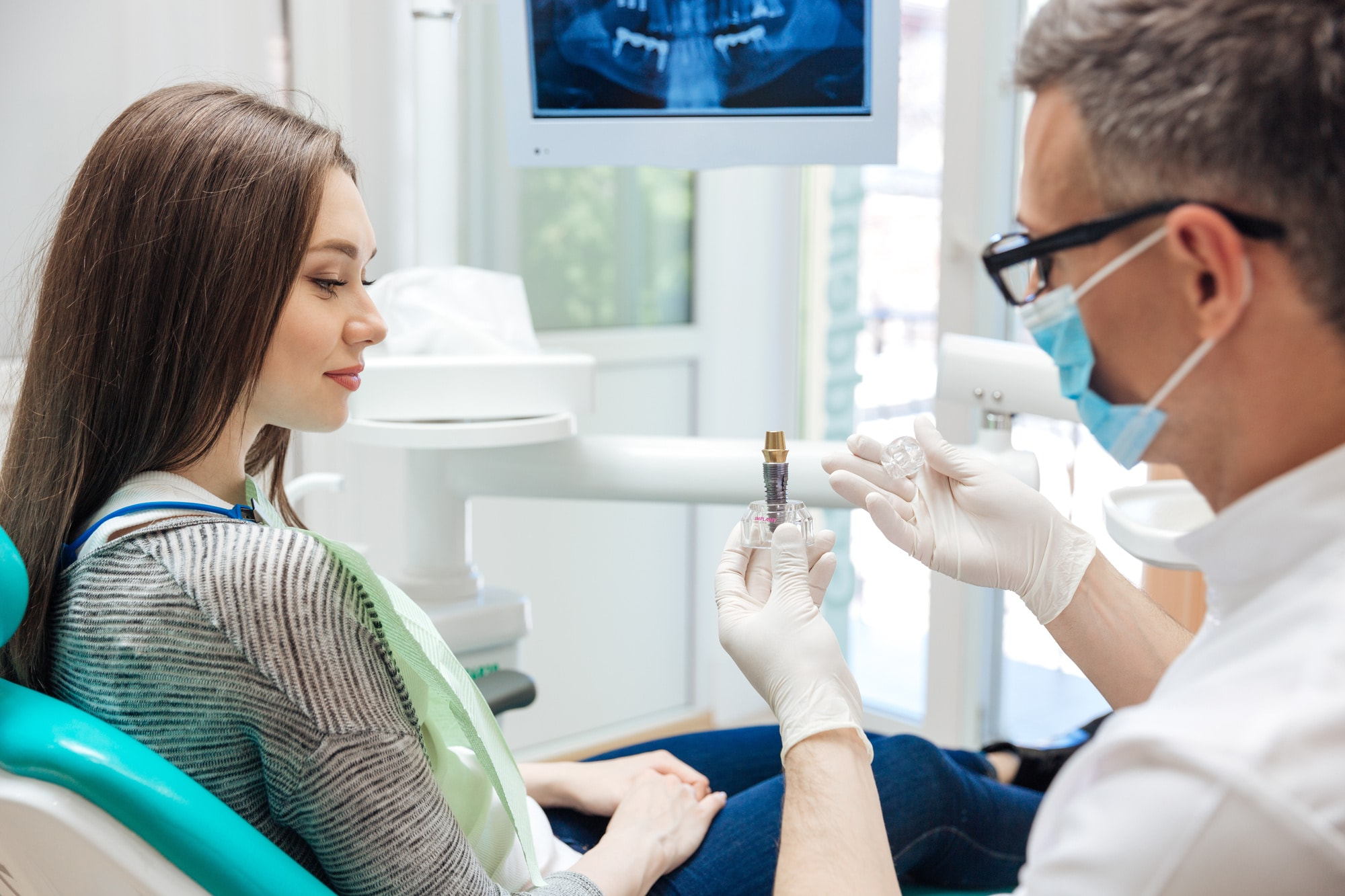Dental implants are a popular and effective solution for replacing missing teeth. If you are considering getting dental implants, it’s important to understand the procedure involved. Here’s everything you need to know about the dental implant procedure.
What is Dental Implant?
A dental implant is a prosthetic replacement for a missing tooth or teeth. It is a small, screw-like titanium post that is surgically inserted into the jawbone to serve as a substitute for the tooth root. Once the implant is securely placed in the jawbone, it fuses with the surrounding bone through a process called osseointegration, providing a stable and strong foundation for a dental restoration.
Dental implants offer several advantages over other tooth replacement options, such as dentures or bridges. They are designed to look, feel, and function like natural teeth, providing a more natural and comfortable solution. Dental implants also help preserve the integrity of the jawbone by preventing bone loss, which can occur when a tooth is missing. This makes them a long-lasting and durable option for tooth replacement.
The dental implant consists of three main components:
- Implant: The titanium post that is surgically placed in the jawbone. This serves as the artificial tooth root and provides support for the dental restoration.
- Abutment: The connector piece that attaches to the implant and protrudes above the gumline. It acts as a link between the implant and the final dental restoration.
- Dental Restoration: The visible part of the dental implant that replaces the missing tooth or teeth. This can be a crown, bridge, or denture, depending on the number of missing teeth and the treatment plan.
Dental implant procedures are typically performed by specialists, such as oral surgeons or periodontists, who have advanced training and experience in implant dentistry. The process involves careful evaluation, treatment planning, surgical placement of the implant, and subsequent restoration to achieve optimal results.
Overall, dental implants are a highly successful and popular solution for replacing missing teeth, offering improved oral function, aesthetics, and overall oral health.

Dental Implant Procedure
The dental implant procedure is a multi-step process that involves several stages from the initial consultation to the final restoration. Here is an overview of the typical dental implant procedure:
- Initial Consultation: The process begins with an initial consultation with a dental implant specialist. During this visit, the dentist will evaluate your oral health, take dental X-rays, and discuss your treatment goals. They will determine if you are a suitable candidate for dental implants.
- Treatment Planning: Once you are deemed a candidate for dental implants, the dentist will develop a customized treatment plan. This plan considers factors such as the number of missing teeth, the condition of your jawbone, and any additional treatments needed, such as bone grafting or tooth extractions.
- Surgical Placement: The next step is the surgical placement of the dental implant. This procedure is typically performed under local anesthesia, ensuring you are comfortable throughout. The dentist will make an incision in the gum tissue to expose the jawbone and then create a small hole to insert the implant screw. The gum tissue is then stitched back into place, leaving the implant securely positioned in the jawbone.
- Osseointegration: After the implant is placed, a process called osseointegration takes place. Over the next few months, the implant integrates with the jawbone, forming a strong and stable foundation. During this healing period, it is essential to follow post-operative care instructions, including maintaining good oral hygiene and avoiding any habits or foods that could disrupt the healing process.
- Abutment Placement: Once the osseointegration is complete, a small connector called an abutment is placed on top of the dental implant. The abutment serves as the attachment point for the final restoration.
- Final Restoration: After the gum tissue has healed around the abutment, impressions of your teeth are taken to create the final restoration. This could be a dental crown, bridge, or denture, depending on the number of missing teeth and the treatment plan. The restoration is custom-made to match the color, shape, and size of your natural teeth, ensuring a seamless and aesthetic result.
- Follow-up Care: Once the final restoration is attached to the abutment, the dental implant treatment is complete. However, it is crucial to attend regular check-ups with your dentist to monitor the health and function of the implant and surrounding oral structures. Proper oral hygiene practices, including brushing, flossing, and regular professional cleanings, are essential for the long-term success of the dental implant.
Dental implants offer numerous benefits, including improved oral function, aesthetics, and durability. By understanding the dental implant procedure and working closely with your dental implant specialist, you can achieve a healthy and confident smile that lasts for years to come.

7 Dental Implant Aftercare Tips From the Experts!
Proper aftercare is crucial for the success and longevity of dental implants. Following the dental implant procedure, here are some important aftercare guidelines to ensure optimal healing and maintenance:
- Oral Hygiene: Maintain excellent oral hygiene practices to keep the implant area clean and free from infection. Brush your teeth at least twice a day with a soft-bristle toothbrush and fluoride toothpaste. Use a gentle, circular motion to clean around the implant and the surrounding teeth. Don’t forget to floss daily, using a floss threader or interdental brushes to clean between the implant and adjacent teeth.
- Avoid Tobacco and Alcohol: If you smoke, it is advisable to quit smoking as it can impair the healing process and increase the risk of implant failure. Additionally, limit alcohol consumption, as excessive alcohol intake can negatively affect oral health.
- Avoid Hard and Sticky Foods: For the first few weeks after the implant placement, stick to a soft-food diet to avoid putting excess pressure on the implant site. Avoid hard, crunchy, or sticky foods that could potentially damage the implant or disrupt the healing process.
- Take Prescribed Medications: If your dentist has prescribed any medications, such as antibiotics or pain relievers, make sure to take them as directed. Follow the recommended dosage and complete the full course of antibiotics, if prescribed, to prevent infection.
- Attend Follow-Up Appointments: Regularly scheduled follow-up appointments are essential for monitoring the healing progress of the implant and ensuring its long-term success. Attend these appointments as recommended by your dentist to assess the health of the implant and address any concerns or issues promptly.
- Protect the Implant: Avoid putting excessive pressure or force on the implant area. Be cautious when engaging in activities that may pose a risk of trauma to the mouth, such as contact sports. If you grind or clench your teeth, consider wearing a nightguard to protect the implant and surrounding teeth.
- Maintain Overall Oral Health: Continue to prioritize good oral health habits by maintaining regular dental check-ups and professional cleanings. Routine dental visits allow your dentist to monitor the condition of your implants, perform thorough cleanings, and address any oral health concerns.

Remember, individual aftercare instructions may vary, so it’s essential to follow the specific guidelines provided by your dental implant specialist. By following proper aftercare practices and maintaining good oral hygiene, you can help ensure the long-term success and functionality of your dental implants.

 Google Reviews
Google Reviews Call
Call